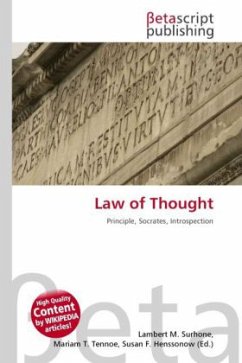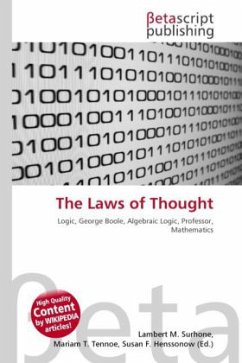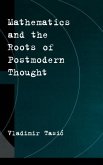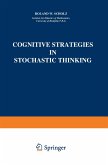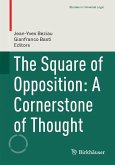High Quality Content by WIKIPEDIA articles! The laws of thought are fundamental axiomatic rules upon which rational discourse itself is based. The rules have a long tradition in the history of philosophy. Socrates, in a Platonic dialogue, described three principles derived from introspection. He asserted that these three axioms contradict each other.The law of noncontradiction is found in ancient Indian logic as a meta-rule in the Shrauta Sutras, the grammar of P ini, and the Brahma Sutras attributed to Vyasa. It was later elaborated on by medieval commentators such as Madhvacharya.John Locke claimed that the principles of identity and contradiction were general ideas and only occurred to people after considerable abstract, philosophical thought. He characterized the principle of identity as "Whatsoever is, is." The principle of contradiction was stated as "It is impossible for the same thing to be and not to be." To Locke, these were not innate or a priori principles.
Bitte wählen Sie Ihr Anliegen aus.
Rechnungen
Retourenschein anfordern
Bestellstatus
Storno

